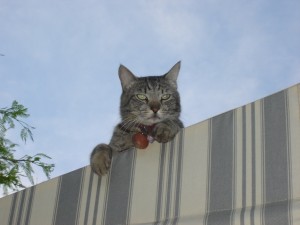I’ll admit it right at the beginning: I’ve always found there to be something creepy about the Falun Gong. I remember seeing practitioners in Taipei sitting with their eyes closed meditating endlessly. I remember their anti-CCP literature. I remember meeting a group of practitioners at the local annual China celebration day in Phoenix and finding them generally icky. But just because I find them creepy doesn’t mean they are a cult, let alone a dangerous one.
This excellent article presents the argument of one of the best informed China Hands I’ve ever read, Ian Johnson, who argues that the FG is not a cult.
In “Wild Grass: Three Portraits of Change in Modern China,” Ian Johnson writes that the “cult” label was designed to “[cloak] the government’s crackdown with the legitimacy of the West’s anti-cult movement.” Johnson argues that Falun Gong does not satisfy common definitions of a cult: “Its members marry outside the group, have outside friends, hold normal jobs, do not live isolated from society, do not believe that the world’s end is imminent and do not give significant amounts of money to the organization.”
One FG watcher quoted in the article, on the other hand, argues that it could be considered a cult because of its Mao-like deification of founder Li Hongzhi.
His ideology is similarly characterized by moral superiority, defining others as absolute evil, dehumanizing enemies by labeling them snake spirits and possessed by ghosts, extolling the virtues of selflessness and sacrifice, emphasizing the necessity of enduring physical hardship, harassing critics, and denigrating science in favor of his purportedly infallible truths.”
Then, in the same article, David Ownby, author of “Falun Fong and the Future of China,” also makes the argument that Falun Gong is not a cult.
“I found that the group generally passed the smell test,” he said. “Yes, they accord a high degree of veneration to [Li Hongzhi] but he’s not around very much so the possibilities of abuse are much reduced. Yes, members are asked to contribute materially to the organization of events, but in my experience that is completely voluntary. Members keep their jobs and remain in society.”
I remember a reference in Peter Hessler’s book China Driving to a young woman living in the Chinese countryside who had loved being a Falun Gong practitioner. For her it was a social outlet; she enjoyed doing the breathing exercises with fellow practitioners, and they were disappointed when the government banned the practice. Hessler elaborates:
Falun Gong was hard to define. – in some ways it felt like a religion or philosophy, but it was also a basic exercise routine. All of these elements combined to create something enormously popular, and this was especially true in the economically challenged parts of northern China. In Sancha, practitioners liked having a new structure to their lives, and soon others began to join them. By the late 1990s, it seemed most villagers met every morning on the lot at the top of the dead-end road. Cao Chunmei and Wei Ziqi became part of the faithful, and years later she described that period fondly. “Wei Ziqi didn’t drink or smoke in those days, because Falun Gong says you shouldn’t do that. And he was so angry then. It seemed the people in the village were happy we all spent time together in the morning.
I have to have mixed feelings about the FG because there is a cultish element among the core group of fanatics, the ones who write for Epoch Times, but for the most part I don’t believe the Falun Gong has ever been dangerous. They were stupid when 10,000 of them materialized in front of Zhongnanhai, which they should have known would totally freak the government out. (It was the largest unauthorized congregations of demonstrators since the 1989 student movement in Tiananmen Square.) That guaranteed their status as an enemy and a threat to the CCP, whose greatest fear is masses of people gathering together without its approval.
The most inane argument I’ve had with my fenqing friends over the years has been their insistence that the government is so hard on the Falun Gong because practitioners don’t believe in seeing doctors when sick. The government, my friends argued, crack down and jail thousands of FG practitioners because they are concerned for their health. Of course, if the government was so concerned about its citizens’ health it wouldn’t allow them to die in cancer villages or suffer lead poisoning, a gift from nearby factories. It wouldn’t have so aggressively covered up the “AIDS villages” in Henan Province. A really dumb argument: the brutal crackdown is all about compassion. A great excuse for the brutal beatings and arrests of thousands of innocents.
Anyway, in the end I’m still conflicted, because some of the FG fanatics do indeed meet the criteria for cultists. But I believe the vast majority of practitioners simply saw it as a way to exercise and socialize. A cult? In some ways, for at least some of the practitioners. Dangerous? No. Who have they ever hurt? Yes, they scared the crap out of the CCP with the demonstration of their organizational capabilities, but they were non-violent and non-confrontational. I think at the end of the day it might depend on how you define a “cult.” The generally accepted criteria, according to Ian Johnson, is that cultists only marry within their group, they resist traditional jobs, they are totally committed to a hierarchical structure around a central personality, they are isolated from society and accept violence. The Falun Gong doesn’t match the criteria. But I can also understand why a lot of people see them that way.


Comments